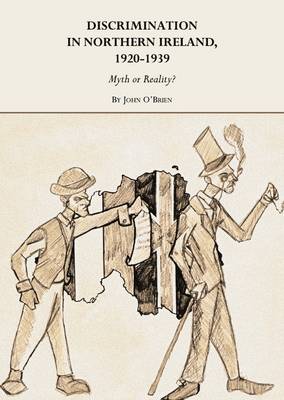Throughout the period of devolved government in Northern Ireland between 1921 and 1972, allegations of discrimination by the Ulster Unionist government against the Catholic and nationalist minority have been constant. These accusations of discrimination were regularly made concerning education, employment, public housing and representation. This book aims to examine these nationalist allegations and assess whether or not discrimination did occur and if so, the extent to which the minority became disadvantaged as a result. This volume focuses on the inter-war period, 1920-39, and evaluates the policies and practices of successive Unionist governments. In essence, it attempts to ascertain whether or not the charges of overt discrimination levelled against the government were warranted. Previous literature on the topic has tended to be biased in favour of one side of the political divide, be it Ulster unionism or Irish nationalism. Drawing from a wide range of primary and secondary sources, this book has found that the need for mutual understanding is paramount. The Stormont administration’s need to concentrate all power in its own hands was most likely born out of a longing for security and self-preservation and motivated by siege mentality and internal threat. Is there a state in the world where there would not exist a bias, justified or unjustified, against those who refused to be loyal to or even recognise that state? Discriminatory practices, engaged in as a means to an end, may have become a way of life for some Protestants and unionists. It definitely came to be seen as such by the Catholic and nationalist minority, whether justified or not.
- ISBN13 9781443817448
- Publish Date 19 March 2010
- Publish Status Active
- Publish Country GB
- Imprint Cambridge Scholars Publishing
- Edition Unabridged edition
- Format Paperback
- Pages 70
- Language English
